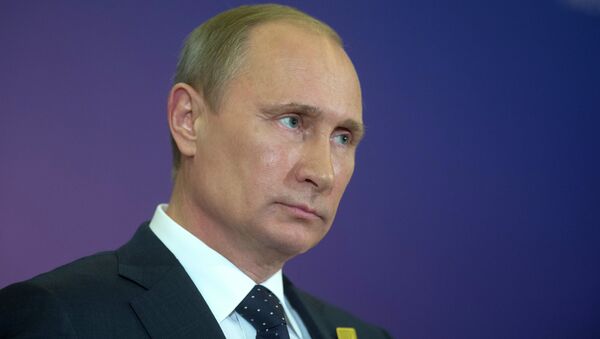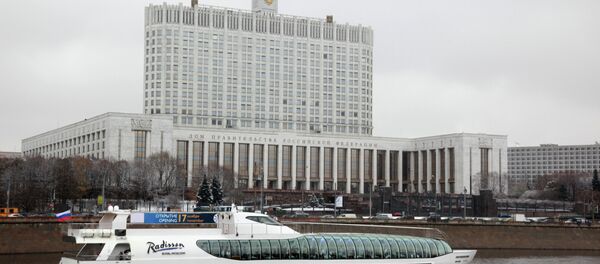MOSCOW, November 25 (Sputnik) – Russian President Vladimir Putin on Tuesday signed what are being called “deoffshorization” plans into law.
The following is an offshore zones overview.
An offshore zone is a low or zero tax territory and is attractive to business and the wealthy because of its lack of investment regulations, simplified company registration systems, and tight confidentiality. Unlike free economic zones, which are primarily for the promotion of the real economy, offshore zones are uniquely tailored for financial transactions alone.
Offshore zones serve many purposes but their primary utility is to minimize tax payments and to increase asset liquidity.
Many large international banks operating on global currency and stock exchanges are headquartered in offshore zones.
Offshore zones are useful for financial transfers via legal but highly confidential transactions, but they can also be abused by criminals to launder money or any person or entity that seeks to limit their tax liability by hiding capital. Companies based in offshore zones can enter markets that, where they located in their home country, would be difficult or even proscribed by international law.
A supplement to Directive No. 1317-U of the Russian Central Bank lists three groups of offshore zones, depending on transaction requirements and contingency reserve provisions: No contingency reserves in the first group, contingency reserves amounting to 25 percent of the operating fund in the second group, and 50 percent contingency reserves in the third group.
The countries where offshore companies are registered are divided into three groups.
The first group includes small states or islands with medium-level economic development that are politically very stable, such as Belize, Bahamas, British Virgin Islands, and Cayman Islands. These states have soft financial reporting requirements and typically request only a fixed annual contribution to their budget. Companies seldom keep shareholder and management registers in these countries, which ensures tight secrecy for owners.
The second group comprises enhanced respectability offshore zones. In these zones, offshore companies are offered tangible tax incentives but are requested to provide financial reports. The governments of these countries usually monitor the operation of offshore companies more tightly than the countries in the first group. They also keep registers of the offshore companies’ shareholders and directors, which improves the prestige of the companies registered in these zones. This group includes Ireland, Gibraltar, the Isle of Man and Hong Kong.
The third group includes non-standard offshore zones. The countries in this group cannot be considered standard offshore zones, but they offer certain privileges for non-resident companies in search of high profits. Financial reporting requirements in these zones are high, which serves to build up partners’ trust. This group includes Russia (the Kaliningrad Region).
There is no single list of offshore zones, but they are monitored by the International Monetary Fund (IMF) and national central banks.
Russia’s list of states and territories that offer low or zero tax regimes and/or have no regulations on financial reporting transparency (offshore zones) is approved by the Ministry of Finance.
The following list of offshore zones was approved for tax purposes by a decree of the Russian Finance Ministry dated November 13, 2007 (as amended on February 2, 2009 and August 21, 2012): Anguilla; the Principality of Andorra; Antigua and Barbuda; Aruba; the Commonwealth of the Bahamas; the Kingdom of Bahrain; Belize; Bermuda; Brunei Darussalam; the Republic of Vanuatu; the British Virgin Islands; Gibraltar; Grenada; the Commonwealth of Dominica; the People’s Republic of China: Hong Kong Special Administrative Region (Xianggang) and Macau Special Administrative Region (Aomen); the Union of the Comoros: Anjouan Island; the Republic of Liberia; the Principality of Liechtenstein; the Republic of Mauritius; Malaysia: Labuan Island; the Republic of Maldives; the Republic of Malta; the Republic of the Marshall Islands; the Principality of Monaco; Montserrat; the Republic of Nauru; Netherlands Antilles; the Republic of Niue; United Arab Emirates; Cayman Islands; Cook Islands; Turks and Caicos Islands; the Republic of Palau; the Republic of Panama; the Independent State of Samoa; the Republic of San Marino; St. Vincent and the Grenadines; St. Kitts and Nevis; St. Lucia; self-governing British Crown Dependencies: Isle of Man and Channel Islands (Guernsey, Jersey, Sark and Alderney islands); and the Republic of Seychelles.



